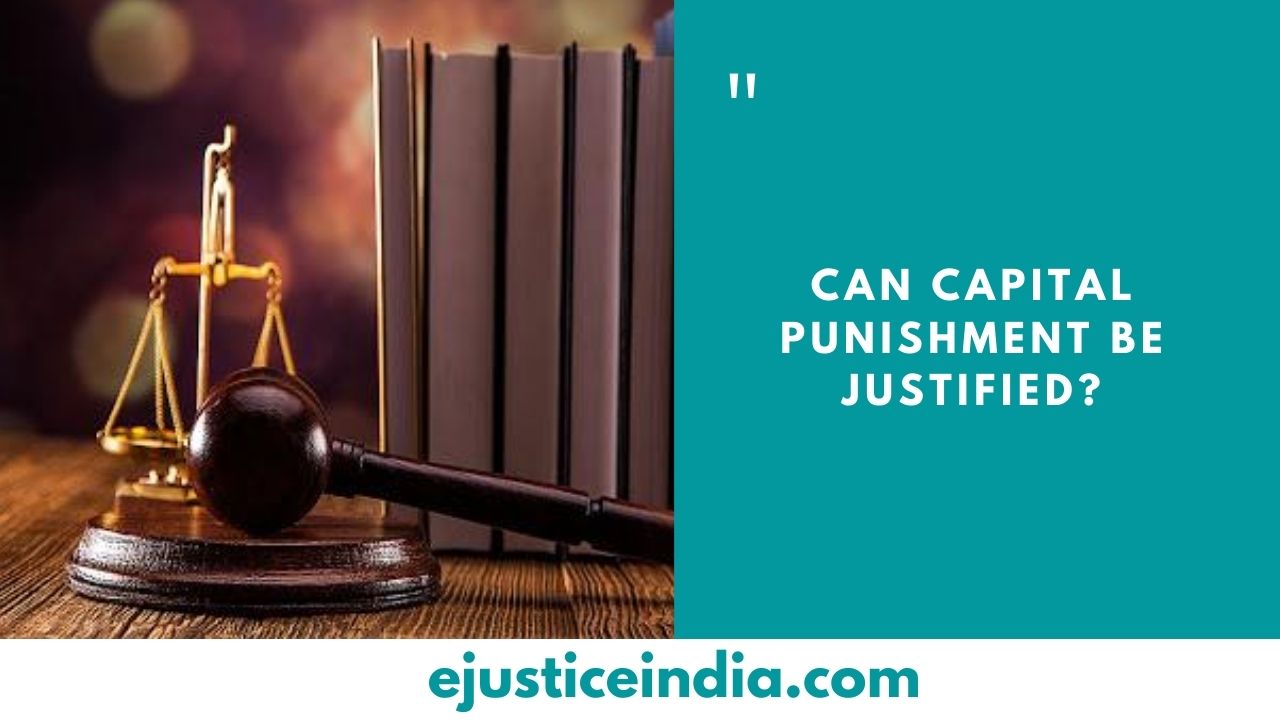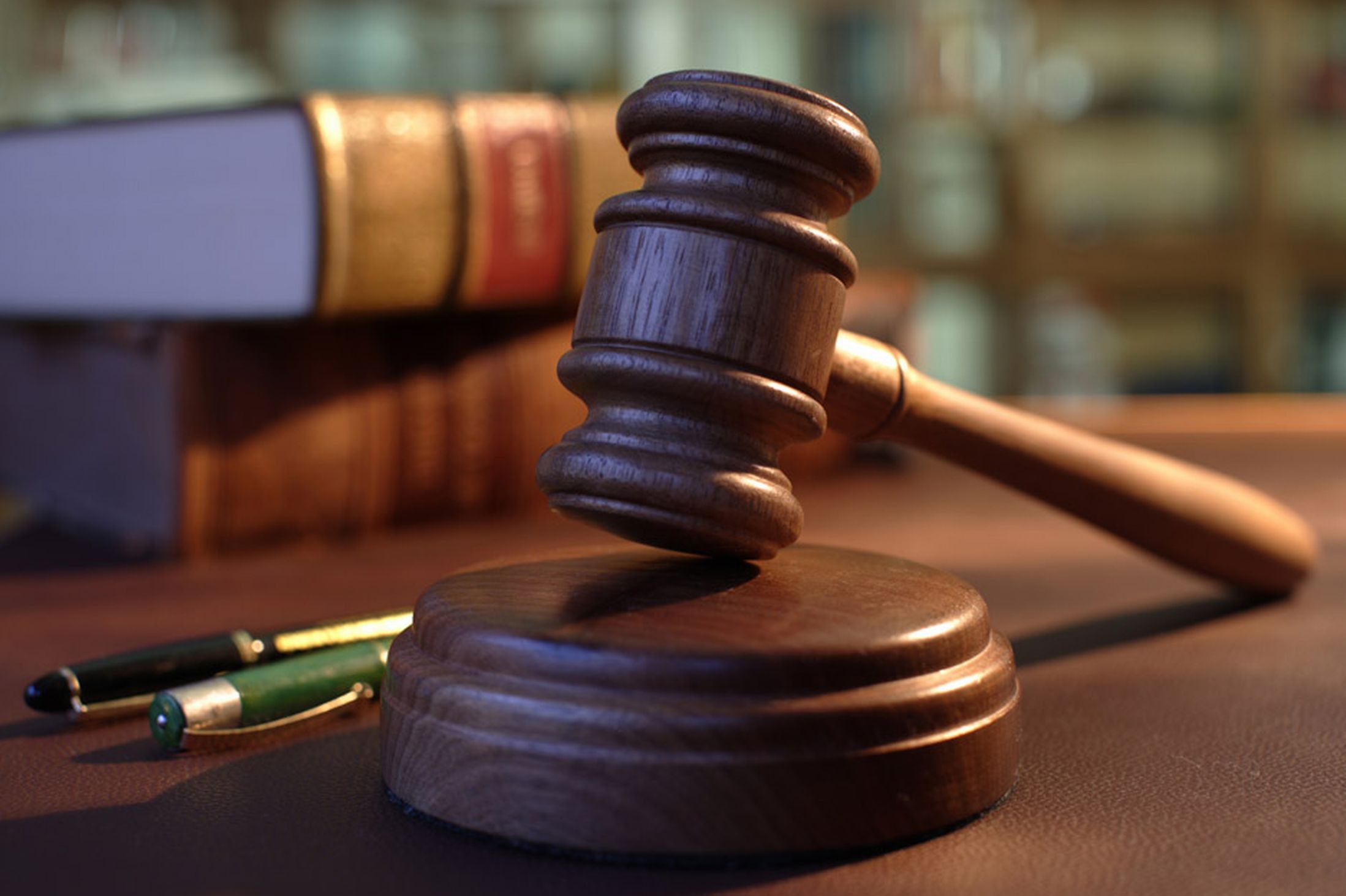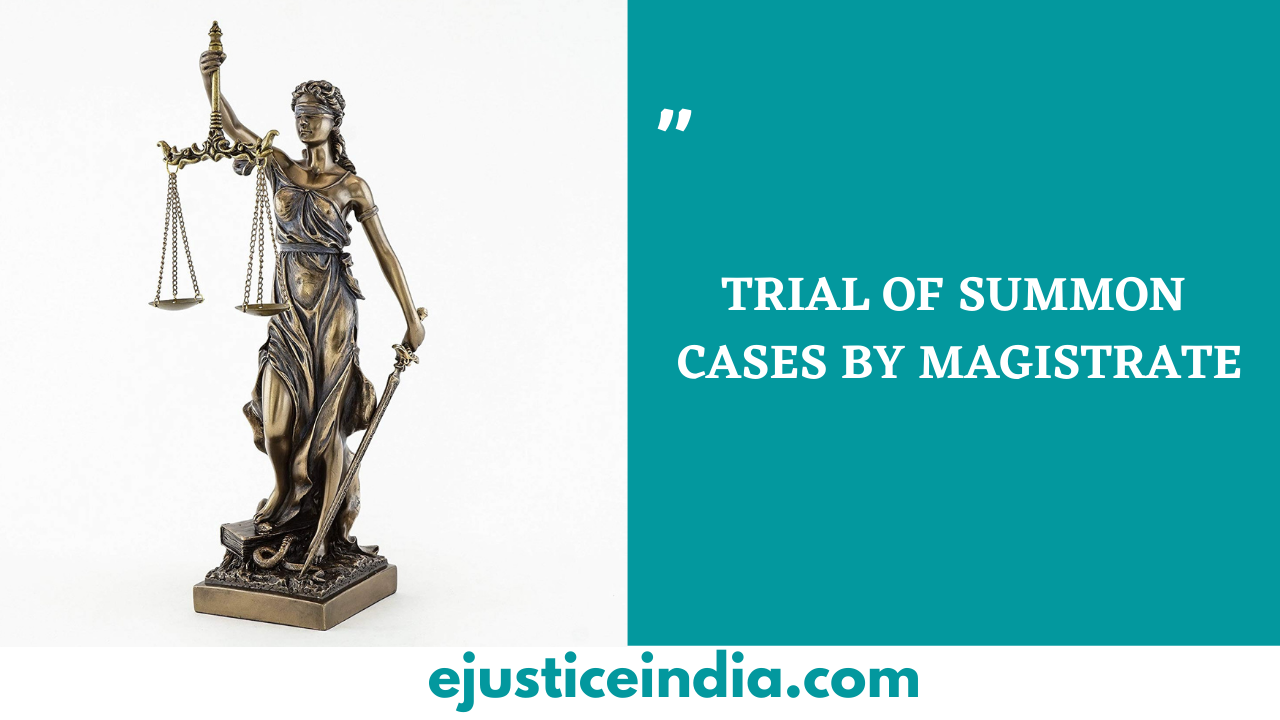Reference and Revision (Section 395-405 of CrPC)
Author : Jenifer Ranjani
Introduction:
A Judge may make some error as Judge also human. No human is perfect this can apply to Judges or Magistrates. The provisions such as Appeal, Review and Revision are to avoid any injustice if any human has grievance about the given decree or Judgment and an attempt to reduce the errors, which has been done by Judges and Magistrates[1].
Section 395 to Section 405 of Criminal Procedure Code, 1973, deals with the powers of reference and revision granted to the higher courts; those powers are discretionary and extensive. The appellant courts have powers to obviate any failure of justice. The High Court can take up any revision petition on either way by petition by aggrieved party or by any other party or by its own motion i.e. suo moto. Aggrieved person can get shelter of law by using the provision of the Chapter XXX, Sections 395 to 405.
Reference:
Reference can be defined as to transfer or to send something. It lays terms to consult a various information from the trial Court which is to make an application for the explanation of the Legislation, Act or regulation pertaining to the case. Those information is for to find any misapplication or misunderstanding or reevaluation of the facts of any case in tandem with application of law.
High Court empowers the reference power where the cases are transferred by the Subordinate Courts. Reference can be done to the High Court as per the Section 395, for which the case is pending and it has involved in any question pertaining to any of the Act or Regulation or Ordinance or any Provision[2], which is necessary to determine to dispose a case[3]. Then that mentioned Act or provision or ordinance may be inoperative or invalid but not been declared by the High Court or Supreme Court, the subordinate court should state the reasons and opinion for which is used as reference of High Court decision.
In Sophian Case, Accused was charged with rape and murder who are the military officers who empowered to search and seize under AFSPA[4]. Prosecutor challenged the power of the officers for their powers under AFSPA[5]. In Dasarthroop Singh Case the objection was raised that court jurisdiction was given under the Negotiable Instruments (Amendment ) Ordinance 2015 is not valid.
Revision:
Generally, Revision is to change the decision, which has been already made. Both revision and appeal are under the review procedures of Criminal Procedure Code. Superior Courts have the power to suspend or execute the sentence. The revision provision do not provide any right to the litigant[6] and subjected to certain limitations[7]. Nowhere in Criminal Procedure Code, 1973, “Revision” has been defined but in Section 397 of code, empowers the High Court or any Sessions Court to call, examine the records of any proceeding:
- As to the legality, correctness or propriety of any finding, whether recorded or passed whether sentence or order given, and
- The regularity proceedings of any inferior Court
Additionally, they have the enough powers to suspend the sentence of any execution or restore[8] ; direct to release any accused on bail or on his own bond; order an inquiry subject to its certain limitations.[9]
Usually the High Court has power to re examine the case which has been dealt by the Lower Courts; this power is not like appeal; High Court can determine whether to examine a case or not. The purpose of a revision is to reassure the legal procedures which were exercised by the lower court is without any errors while delivering the verdict. Revision in Higher Court falls under Revisional Jurisdiction[10].
In Amit Kapoor vs Ramesh Chander & Anr[11] that “the revisional jurisdiction may not be used whenever the decisions are under challenge of grossly erroneous, not with the provisions of law, the recorded has not done in procedural manner i.e., without any proper evidence, ignored material evidence or arbitrarily or perversely exercised judicial discretion.”
The same Court mentioned in the case of State Of Rajasthan vs Fatehkaran Mehdu[12] that “the object of Revision provision is to set right an error or patent defect of jurisdiction or the perversity or the law which has been crept in the proceeding further explained about this provision.”
In Faruk @ Gaffar vs State Of U.P.[13] the Allahabad High Court held that “whenever the matter is brought before the notice of the Court and Court should satisfy with the facts and circumstances of the case which has been produced before that, if that case is made out for the exercising of the revisional powers in suo moto, it should be for the interest of justice.”
Section 401 of the Criminal Procedure Code imposes certain statutory limitations on the High Court to exercising its revisional powers.
- Order should not be passed unless due opportunity should given to the accused to him[14].
- When an appeal application has forwarded as revisional application, after analysis its jurisdiction, if the court feels that it has appeal provision it should be treated as an appeal in the interests of justice.
- When party could have gone for appeal but he filed an application of revision, that application cannot be proceeded further.
- Revision application cannot be used for interlocutory orders
- When a person apply for revision, that argument should be considered during the hearing even if too brief[15].
In the process of revision Superior Court may direct any Chief Judicial Magistrate by himself or any of his subordinate to conduct further inquiry into the complaint which was dismissed under the following sections such as Section 203 or Sub section (4) of Section 204. Session Judge can exercise any or all power of High Court which has been mention in the section 401 then that decision can be considered as final so no further proceeding is entertained.
If any power is transferred to an Additional Judge, then Judge can also exercise the Session Judger powers. High Court may direct to transfer all the revision which has made in different Court for single trial. Both High Court and Sessions Court should deal with the case as its own proceedings. To hear the parties is option in revision. If any case is revised under the section 388 by any court, High Court shall certify its decision and record if needed[16].
The Superior Courts may call for any record of the proceeding of any other inferior criminal Court situated within that superior Courts jurisdiction for the purpose to satisfy its legality of propriety of any finding, correctness, sentence, etc. Thus, the Superior Court could examine all the question in relation to any inadequacy of sentence for the powers conferred on him by Section 397(1) of Criminal Procedure Code, 1973.[17]
Differences between the powers of Session Court and High Court has been discussed in the following cases such as S. Balasubramaninan vs The State Of Tamil Nadu[18], Alamgir vs State of Bihar[19], Asghar Khan And Ors. vs State Of Uttar Pradesh on 1 May[20], Session Judge can exercise his power for which he called for but High Court has Suo Moto[21]
Distinction between Reference, Revision, Appeal and Review:
| S.No | Reference | Revision | Appeal | Review |
| 1 | Chapter XXX of CrPC with the sections 395 and 396 | Chapter XXX of CrPC with the sections 397 to 402 | Chapter XXIX of CrPC with the sections 372-394 | |
| 2 | It is to consult the higher court for invalid laws, Acts ordinance pertaining to the case or regulations | It is to review or amend or alter any arithmetical error, clerical or grammatical errors by lower court[22] | It is a plea or petition from the lower court | |
| 3 | Reference power is vested with Court | The Revision power can be exercised by superior Court | Appeal power can be exercised by party | The review power can be exercised by very court which passed order or decree |
| 4 | Reference can be done by High Court | Revision can be done by Higher Courts | Appeal can be done by any superior court | Any court review any judgment |
| 5 | Reference can be done in any stage of case such as pending, execution or at appeal | When there is no appeal, Revision can be done | Appeal can be made after passing any appealable order or decree | Review can be made even if appeal lies |
| 6 | The Ground is to entertain the reasonable doubt on suit or executing decree or appeal with regard usage or question of law | Jurisdiction is ground | There are many grounds to go for appeal | Grounds are any new evidence, any apparent mistake on record, any sufficient reason etc |
| 7 | Reference can be done by trial court to High Court | High Court can exercise by either suo moto or higher court | Judgement Debtor may go for appeal | Only aggrieved party can make application |
| 8 | Reference is to entertain the reasonable doubt on suit or executing decree or appeal with regard usage or question of law[23] | No appeal for Revisional Jurisdiction | Memorandum of appeal should be presented before the appellate court | Review is applicable to grant order |
| 9 | Revision does not abate if legal representatives of the deceased party failed to produce the records | Appeal abates if legal representatives of the deceased party failed to produce the record | ||
| 10 | It does not have power to review the evidence unless statute confers[24] | Appeal is the continuation of previous proceedings, has power to review the evidence | ||
| 11 | Reference can be done by High Court | Revision should be done by Superior courts | Appeal should be heard by another Judge | Consideration has been done by same Judge[25]. |
Conclusion:
Reference and revision are different in terms of law but all serves the same purpose to ensure that justice is served. Reference is for consulting the higher courts of law pertaining to the pending cases. Revision is to review or to alter any error made after the deliverance of final judgment. The Jurisdiction for revisional of the High Court is quiet extensive. It has inherent powers to deal the cases of revision which is applicable for substantive as well as procedural matters but it does not have power to reexamine any of the evidence.
[1] Diva Rai, Review, Appeal & Revision: All you need to know about it,https://blog.ipleaders.in/review-appeal revision-all-you-need-to-know-about-it/, January 9, 2020
[2] Dasarthroop Singh Rathore v the State of Maharastra
[3] Shopian Case
[4] Ashish Agarwal, Reference and Revisionary powers of Courts under the CrPC, 1973, https://www.legalbites.in/reference-and-revisionary-powers, October 29, 2019
[5] Armed Forces Special Powers Act
[6] Pranab Kumar v. State of West Bengal
[7] Section 398 of Code of Criminal Procedure,1973
[8] Alamgir v. State of Bihar AIR 1959 SC 436
[9] Section 398 of The Code of Criminal Procedure, 1973.
[10] Difference Between Appeal and Revision (With Table), https://askanydifference.com/difference-between-appeal-and-revision/
[11] (2012) 9 SCC 460
[12] Criminal Appeal No. 216 of 2017
[13] Criminal Misc. Application No. 227273 of 2012
[14] Mohd. Afzal vs Noor Nisha Begum on 5 February, 1997 ILAD Delhi 197
[15] Paul George v. State
[16] Reference and Revision, by Times News Journal, http://lawtimesjournal.in/reference-and-revision/ October 21, 2019
[17] Section 399 of The Code of Criminal Procedure, 1973.
[18] Crl. Revision Nos.8,9 of 2009 and Crl.O.P.No.8025 of 2008
[19] AIR 1959 SC 436
[20] 1981 AIR 1981 SC 1697
[21] Anubhav Pandey, Appeal, Reference and Revision under the Code of Criminal Procedure, https://blog.ipleaders.in/appeal-reference-and-revision-under-crpc/, February 15, 2019
[22] Appeal, Reference and Revision under the criminal Procedure Code, https://www.lawnn.com/appeal/#:~:text=Revision%20lies%20to%20both%20the,final%20decision%20of%20the%20court., November 12, 2018
[23] Amit Kapoor v. Ramesh Chander & An 2012 9 SCC 460
[24] State of Kerala v K.M. Charia Abdulla and Co AIR 1965 SC 1585
[25] Mohd Aqib Aslam, Review Under Code of Civil Procedure An Overview http://www.legalserviceindia.com/legal/article-1727-review-under-code-of-civil-procedure-an-overview.html
R.Jenifer Ranjani, Government Law College, Villupuram


